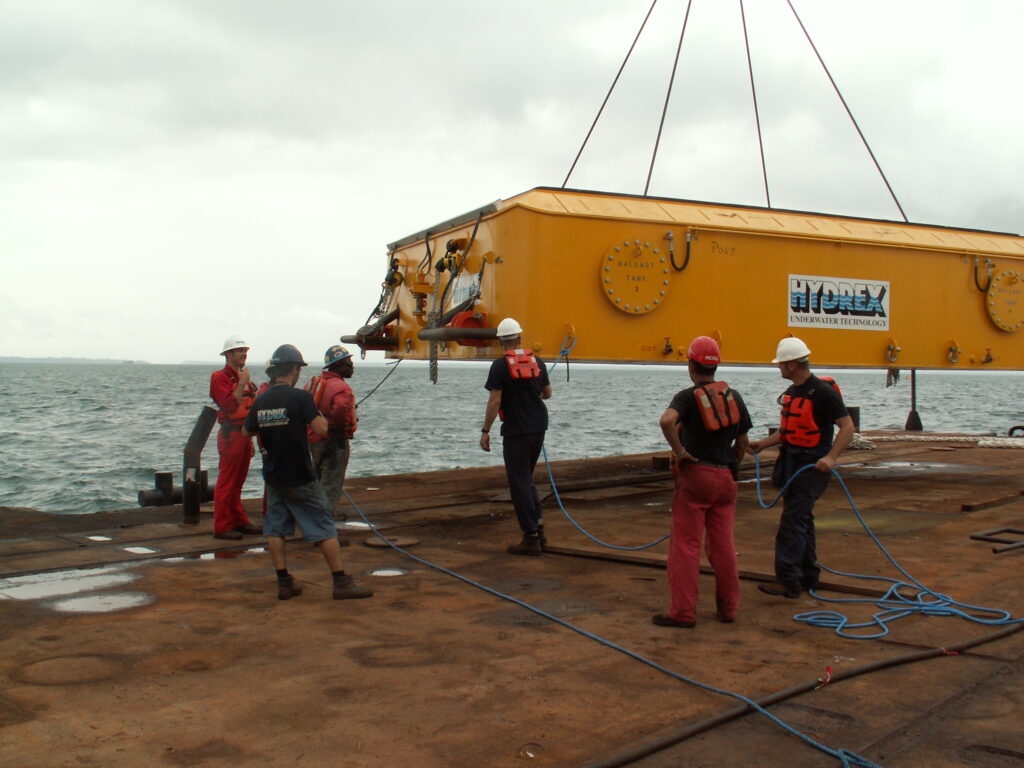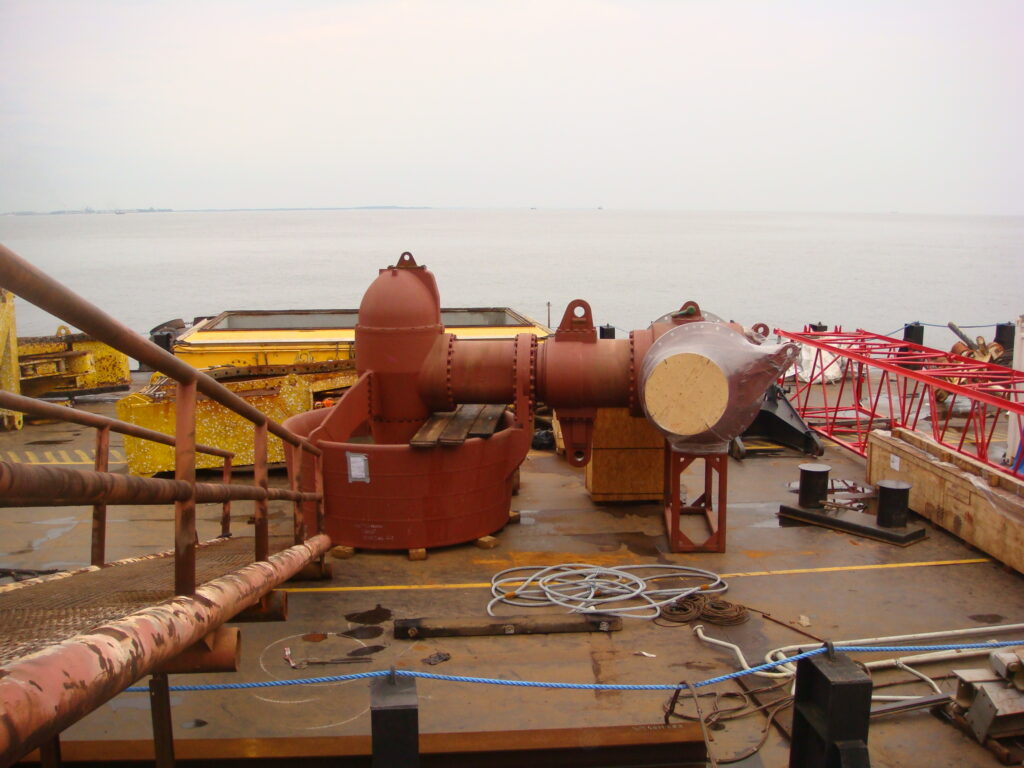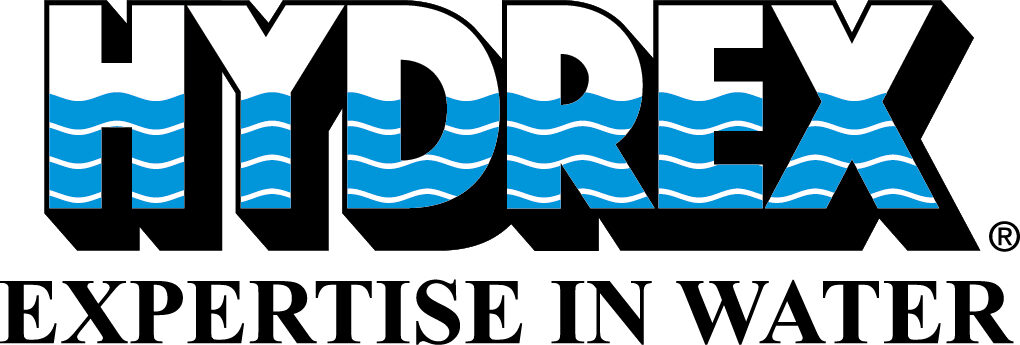Hydrex diver/technician team mobilized to an offshore crane barge stationed at its service base in Gabon to replace one of the vessel’s swing-up azimuth thrusters with the spare.
The operation had to be carried out in a very short timeframe because the crane barge was scheduled to leave for an operation in Nigeria. All repairs and other servicing work needed to be carried out before the start of this operation. For this reason going to drydock was not an option as the nearest suitable location was South Africa and this would have taken the repairs far beyond the available timeframe.
Hydrex had carried out a similar operation on this vessel on two occasions. Four years ago when the first azimuth thruster was replaced, a large mobdock (measuring 9 x 6 x 2 meters and weighing over 25 tons by itself) was constructed under Hydrex supervision in Belgium and transported to Gabon. There it was stored after the repair to be used at short notice whenever future repairs were required on thrusters. This allowed for a very fast mobilization and thruster replacement on the next two occasions.
To allow the Hydrex diver/technicians to work on the water sensitive parts of the azimuth thruster the tailor-made mobdock was installed around the retracted thruster and all water was pumped out of it to create a dry environment underwater. The team then disconnected the unit from the engine room and sealed it off. Next they removed the mobdock, lowered the thruster unit onto a special support cradle under the work barge and brought it onboard the barge.
Subsequently Hydrex engineers removed the steering gear from the old thruster unit and installed it on the spare unit that had also been brought onto the barge. This was done under the supervision of a representative of the manufacturer. The old thruster was then brought to shore for transportation to the workshop where it will be overhauled, so that the owners can store it to use as a spare during future operations.
Meanwhile the team installed the new thruster into the crane barge following the reverse procedure. Finally they successfully carried out commissioning and testing. This concluded the replacement well before the start of the barge’s next operation and presented a major saving in time and money for the owner as he did not have to take the offshore unit off hire to go to drydock.



